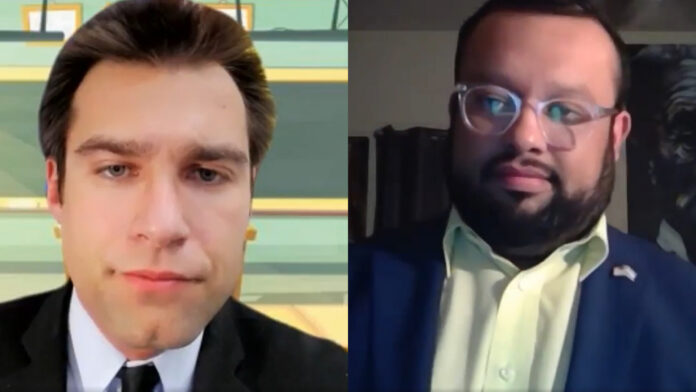McALLEN — Two Democratic candidates competing for the District 2 seat on the State Board of Education faced off in a forum Monday hosted by Futuro RGV.
Thomas Garcia and Michael Vargas are both in a five-man primary race for the spot which incumbent Ruben Cortez is vacating.
They were the only candidates to show up for the forum, although candidate Victor Perez did submit a written statement.
Both Garcia and Vargas are former teachers.
Garcia, a Pharr native, is the executive director of an education nonprofit. He stressed his first-hand experience with educating in a pandemic.
Vargas is a Pharr city employee. A former board trustee, he stressed his legislative advisory committee for TASA policy experience in Austin.
The two candidates spoke about a variety of statewide policy issues, and voicing passionate opposition to Republican-backed education initiatives from the past year.
Often their answers mirrored each other, although the candidates did sometimes stress different points.
Asked what issues he would recommend to be part of the board’s legislative agenda in 2023, Garcia listed mental health program improvements, moving away from STAAR tests, and listening more to teachers.
“Even before the pandemic,” he said. “Issues of teacher pay, incentive pay. Getting rid of administrative duties.”
Vargas echoed the need to prioritize mental health programs, adding that he would also include pandemic recovery and social justice, a topic he says he is “very, very, very passionate about.”
“So I want to make sure that there’s inclusive education in our curriculum, and to ensure that the state and Austin understands that that is an important part of our history,” he said.
One of the candidate’s most interesting exchanges concerned changing school calendars.
Asked about his feelings on the possibility of extending school years throughout the summer to make up for learning loss during the pandemic, Vargas said he was fully in support of it.
In fact, he thinks the change should be permanent.
“So I’m a big believer, I think even philosophically beyond the pandemic, is that we should have a longer school year,” he said. “I think countries like Japan and other European countries that have year-round school calendars, I think, does much to improve the plight of their students, even amongst those who are the less fortunate.”
Garcia was not as big a fan of perpetual education. He expressed concern over what more school days would do to teacher morale, and said that sort of calendar shift should be preceded by serious conversations about finances and personnel.
“The reality is, we need to put students first, but that shouldn’t come at the expense of putting even more administrative work on educators,” he said. “If we are going to do something like expand the academic year, we need to have a serious conversation with the people on the ground.”





